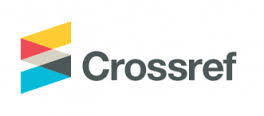educational technology Factors Influencing Al al-Bayt University Students’ Acquisition of Digital Skills
DOI:
https://doi.org/10.59759/educational.v4i2.1050Keywords:
Factors Influencing, Digital Skills, Al al-Bayt UniversityAbstract
This study aimed to identify Factors Influencing Al al-Bayt University Students’ Acquisition of Digital Skills. The study population consisted of all Al al-Bayt University students in the first semester of the academic year (2024/2025), while the study sample was a stratified random sample totaling (524) male and female students.To achieve the study objectives, the descriptive methodology was used, employing a questionnaire as the research instrument, which consisted of six domains with a total of (55) items. The study results indicated that the degree of possession of digital skills among Al al-Bayt University students was moderate. The results also showed no statistically significant differences at the significance level (α≤0.05) in the digital skills acquired by Al al-Bayt University students attributed to the gender variable. However, there were statistically significant differences at the significance level (α≤0.05) in digital skills attributed to the academic year and cumulative average.
Downloads
References
Al-Adwan, A., Albelbisi, N. A., & Al-Adwan, A. S. (2021). Promoting digital literacy among university students in Jordan: A study on challenges and opportunities. Education and Information Technologies, 26(3), 3055–3075. https://doi.org/10.1007/s10639-020-10418-1
Alam, S., & Hussein, M. (2021). Digital skills and their impact on university students' academic success. International Journal of Digital Education, 15(4), 68-82.
Anderson, J. (2021). Digital literacy in higher education: A review of recent trends. Education Press.
Anderson, J., & Xu, L. (2021). The role of digital competencies in academic performance: A case study of university students. Educational Technology Journal, 40(2), 102-115.
Arias, R.; Aparicio, A.S. Habilidades del pensamiento y rendimiento académico en estudiantes universitarios de las carreras de Ingeniería y Arquitectura. Rev. Investig. Psicol. 2018, 21, 67–78. [CrossRef]
Baker, R., & Green, A. (2023). Bridging the digital divide: Improving digital literacy among university students. Journal of Education and Technology, 29(1), 23-34.
Collis, J., & Hussey, R. (2013). Business research: A practical guide for undergraduate and postgraduate students. Macmillan International Higher Education.
Dede, C. (2010). Comparing frameworks for 21st century skills. In Bellanca, J. & Brandt, R. (Eds.) 21st century skills: Rethinking how students learn (pp. 51-76). Bloomington, Indiana: Solution Tree Press.
Elkassabgi, A. (2020). Digital transformation in higher education: A case study of universities in the Middle East. Journal of Higher Education Development, 35(2), 200-215.
Fajardo-Bullón, F.; Maestre-Campos, M.; Felipe-Castaño, E.; León del Barco, B.; Polo del Río, M. Análisis del rendimiento académico de los alumnos de educación secundaria obligatoria según las variables familiares. Educ. Xx1 2017, 20, 209–232. [CrossRef]
Graham, C., & Hennessy, K. (2022). Digital skills for the digital age: A framework for higher education. Journal of Educational Innovation, 14(3), 44-59.
Hassan, R., & Al-Momani, S. (2021). Factors affecting the acquisition of digital skills among university students: A case study of Jordanian universities. Journal of Digital Education, 34(2), 125-141. https://doi.org/10.1016/j.jdedu.2021.03.004
Jackman, J.A., Gentile, D.A., Cho, NJ. et al. (2023). Addressing the digital skills gap for future education. Nat Hum Behave ,(5), 542–545.
DOI: org/10.1038/s41562-021-01074-z
Jamal, A., & Hamdan, M. (2022). The role of psychological and social factors in the development of digital skills in university students. International Journal of Educational Technology, 45(3), 212-230.
https://doi.org/10.1080/13400030.2022.1982167
Leung, M., Choi, Y., & Tan, S. (2020). Assessing digital literacy among university students: Challenges and solutions. Journal of Educational Psychology, 52(6), 18-32.
Miller, R. (2022). The impact of digital skills on academic outcomes in higher education. Academic Press.
Nitin, K. (2016). Effectiveness of Instructional Strategy on Life Skill of Problem Solving in Terms of Class VIII Student Achievement in Science. Proceedings of 8th International Conference on Life Skills Education. New Delhi: Excel India Publisher, 75-78.
OECD. (2019). Skills Outlook 2019: Thriving in a Digital World. OECD Publishing. https://doi.org/10.1787/df80bc12-en
Redecker, C. (2017). European Framework for the Digital Competence of Educators: DigCompEdu. Publications Office of the European Union.
Salavera, C.; Usán, P. Influence of internalizing and externalizing problems on self efficacy in Secondary students. Rev. Investig. Educ. 2019, 37, 413–429. [CrossRef]
Sekaran, U., & Bougie, R. (2016). Research methods for business: A skill building approach. John Wiley & Sons.
Smith, L., & Johnson, P. (2023). The digital divide in higher education: Analyzing the skills gap in university students. Higher Education Review, 45(1), 72-89.
Solano, L.O. Rendimiento Académico de los Estudiantes con las Aptitudes Mentales y las actitudes ante el estudio. Ph.D. Thesis, Facultad de Educación, Universidad Nacional de Educación a Distancia UNED, Madrid, Spain, 2015.
Umesh, Kaur, N. (2019). Significance of Life Skills Education. International Journal of 3600Management Review, 7(2019); 1-5. UNICEF (2002).
Vaske, J. J., Beaman, J., & Sponarski, C. C. (2017). Rethinking internal consistency in Cronbach’s alpha. Leisure Sciences, 39 (2), 163–173.
World Economic Forum. (2020). The Future of Jobs Report 2020. https://www.weforum.org/reports/the-future-of-jobs-report-2020


